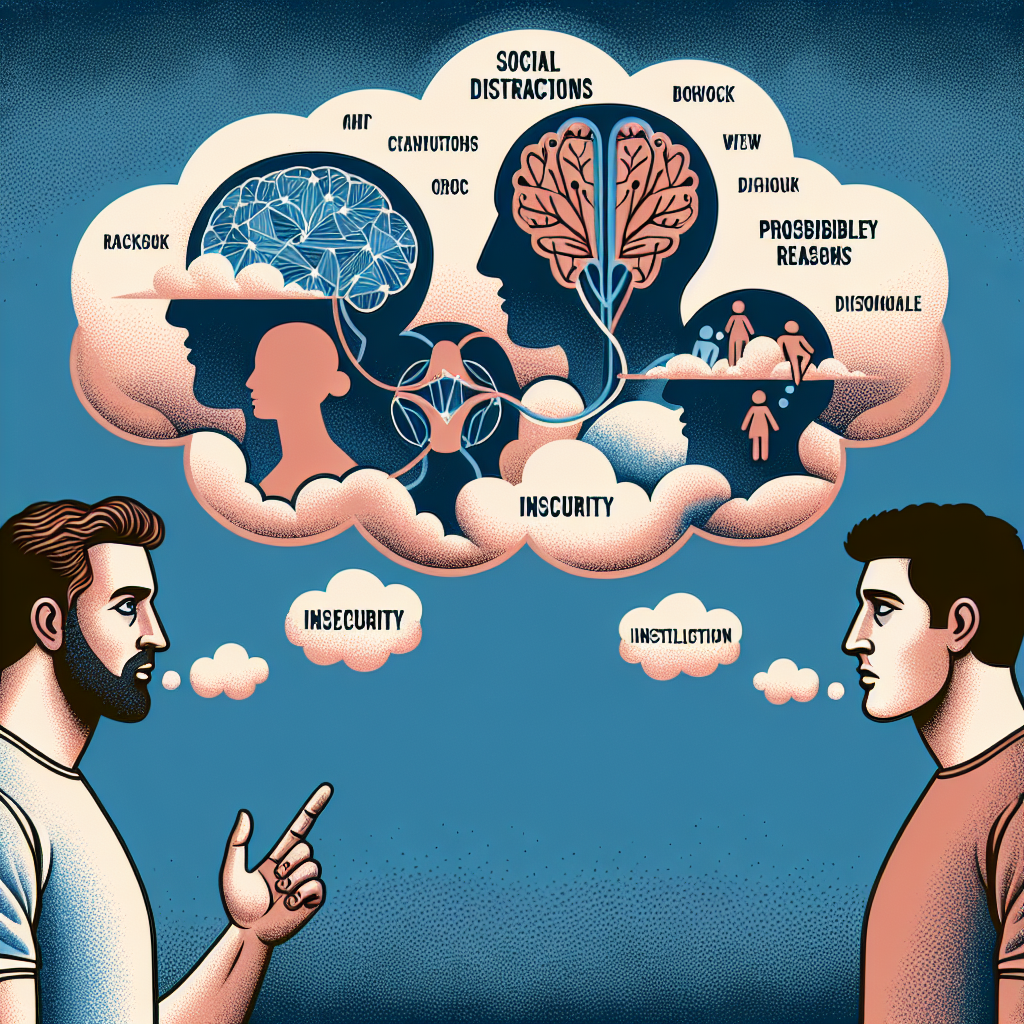Understanding the reasons behind men’s quick glances away can illuminate the complexities of male behavior that often leave others puzzled. Have you ever noticed a man looking away swiftly when you catch his gaze? This behavior can evoke feelings of confusion, insecurity, or even rejection. Addressing this phenomenon is crucial for enhancing interpersonal connections and fostering meaningful communication. In this article, we will explore the psychology behind quick glances and the social contexts that drive this behavior, providing you with invaluable insights into male dynamics.
The Psychology of Quick Glances: A Deep Dive into Male Behavior
Understanding why men look away quickly involves delving into the nuances of male psychology. Men often exhibit this behavior as a protective mechanism. From a young age, societal norms dictate that men should project confidence and assertiveness. When faced with prolonged eye contact, especially in emotionally charged situations, men may instinctively look away to avoid vulnerability or discomfort. This reaction can be attributed to a deep-rooted fear of being perceived as weak or overly emotional, which can trigger an automatic retreat.
Moreover, quick glances away can reflect the evolutionary pressures that have shaped male behavior. Historically, men have been wired to assess their environment swiftly, scanning for threats or potential opportunities. This instinctive behavior translates into modern social interactions, where men may look away to maintain a sense of control or to assess the dynamics of a conversation. The fleeting glances can serve as a cognitive reset, allowing men to process information more effectively without feeling overwhelmed or exposed.
Additionally, cultural factors play a significant role in shaping how men engage in eye contact. In many cultures, direct eye contact is associated with dominance and aggression, leading to an instinctive response of looking away. This cultural conditioning reinforces the idea that prolonged eye contact may be perceived as confrontational or inappropriate. As a result, men may quickly divert their gaze to conform to societal expectations, further complicating their interactions and the perceptions of those around them.
Exploring Social Contexts: Why Men Look Away Rapidly
Understanding the social contexts in which men look away rapidly provides crucial insights into their behavior. Different settings—such as professional environments, casual gatherings, or intimate situations—can significantly influence the way men engage with eye contact. For instance, in workplace interactions, looking away can signify a desire to maintain professionalism and prevent any emotional overtones that might complicate a business discussion. In these scenarios, quick glances may serve as a way to uphold boundaries and maintain a focus on the task at hand.
In contrast, social situations often introduce a different set of dynamics. When men interact with women or peers in casual settings, the stakes of eye contact can change dramatically. Quick glances away might reflect feelings of attraction, nervousness, or even shyness. This behavior can stem from a fear of misinterpretation; men often worry that maintaining eye contact could convey an unintended message about their intentions. Consequently, they may instinctively look away to mitigate the risk of a misunderstanding or to regain a sense of composure.
Understanding the context also extends to recognizing the individual personalities involved. Some men are naturally more introverted, making them less comfortable with sustained eye contact. This discomfort can lead to swift glances away, reinforcing the need for more nuanced interpretations of their behavior. Conversely, extroverted individuals may use eye contact to gauge reactions and establish rapport. Therefore, recognizing these variations can enhance interpersonal communication, allowing for a deeper understanding of the motivations behind quick glances.
In conclusion, understanding the reasons behind men’s quick glances away reveals a complex interplay of psychological, social, and cultural factors. By recognising these dynamics, you can navigate interactions more effectively, fostering deeper connections and minimizing misunderstandings. Whether in personal or professional settings, acknowledging the underlying motivations for this behavior can help create a more empathetic and inclusive environment. Ready to enhance your interpersonal skills? Engage in open conversations and explore these insights further to enrich your understanding of male behavior and improve your interactions.
Managing Degenerative Disc Disease: The Role of YogaSubmitting Your Web Wrapped Curio: A Step-by-Step GuideStrategic Hiding Spots in Life is Strange Pool SceneRelevant LinkRelevant LinkRelevant LinkExploring the Impact of 40,000 Daily Steps on Weight LossEffective Yoga Poses for Optimal Weight Loss and WellnessComprehensive Reviews of Happy Mammoth Weight Loss ProgramRelevant LinkRelevant LinkRelevant Link
